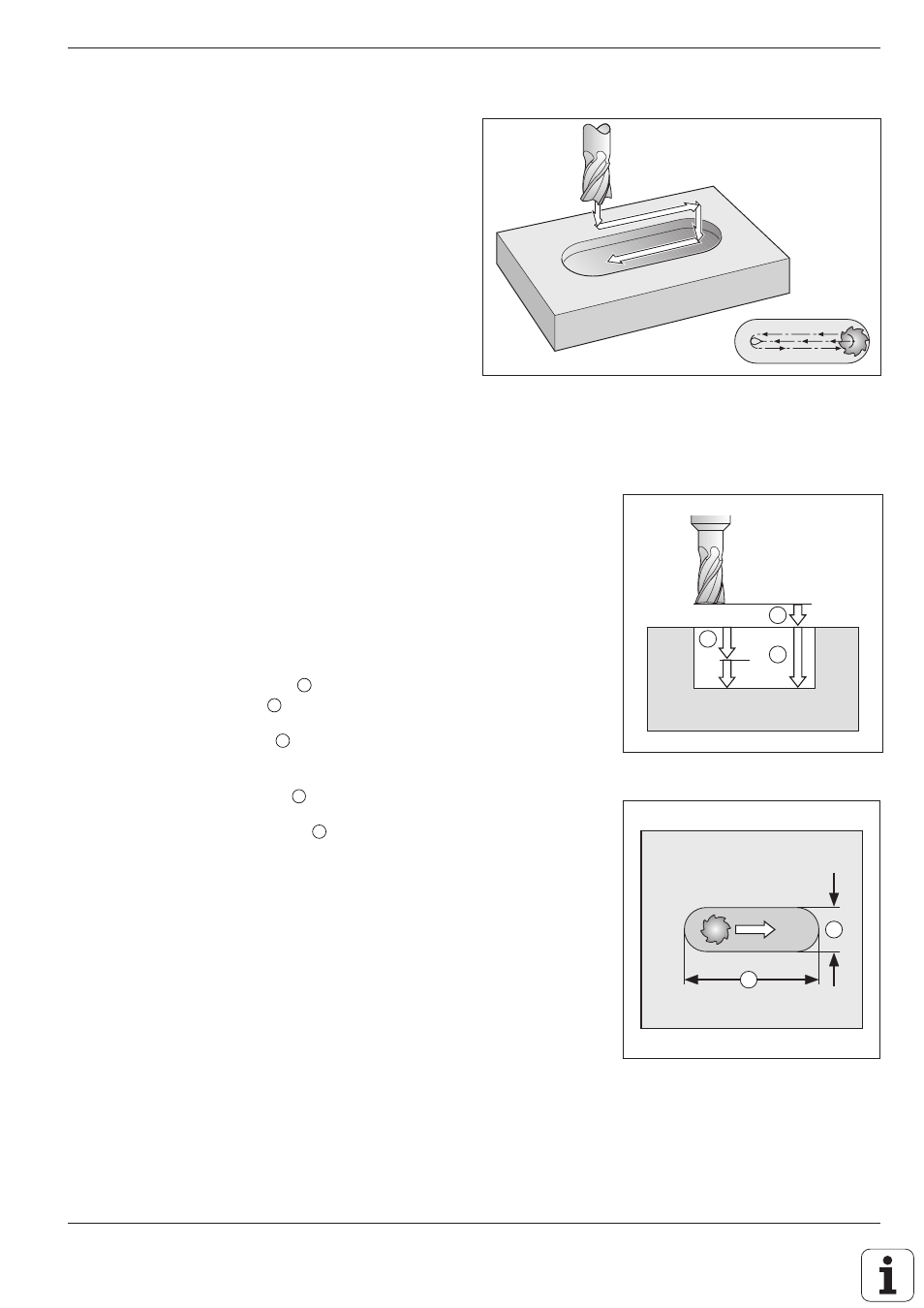Slot milling (g74) -11, Slot milling (g74) – HEIDENHAIN TNC 407 (280 580) ISO Programming User Manual
Page 231

8-11
8
Cycles
TNC 426/TNC 425/TNC 415 B/TNC 407
Fig. 8.7:
Side lengths of the slot
Fig. 8.6:
Infeeds and distances for the
SLOT MILLING cycle
Fig. 8.5:
SLOT MILLING cycle
A
B
C
E
D
SLOT MILLING (G74)
Process
Roughing process:
• The tool penetrates the workpiece from the
starting position, offset by the oversize, then
mills in the longitudinal direction of the slot.
• The oversize is calculated as: (slot width – tool
diameter) / 2.
• After downfeed at the end of the slot, milling is
performed in the opposite direction.
This process is repeated until the programmed
milling depth is reached.
Finishing process:
• The control advances the tool at the bottom of
the slot on a tangential arc to the outside
contour. The tool subsequently climb mills the
contour (with M3).
• At the end of the cycle, the tool is retracted in
rapid traverse to the setup clearance.
If the number of infeeds was odd, the tool
returns to the starting position at the level of the
setup clearance in the main plane.
Required tool
This cycle requires a center-cut end mill (ISO 1641). The cutter diameter
must be smaller than the slot width and larger than half the slot width.
The slot must be parallel to an axis of the current coordinate system.
Input data
• SETUP CLEARANCE
A
• MILLING DEPTH
B
: Slot depth. The algebraic sign determines the
working direction (a negative value means negative working direction).
• PECKING DEPTH
C
• FEED RATE FOR PECKING:
Traversing speed of the tool during penetration
• FIRST SIDE LENGTH
D
:
Slot length, specify the sign to determine the first milling direction
• SECOND SIDE LENGTH
E
:
Slot width
• FEED RATE:
Traversing speed of the tool in the machining plane.
Starting point
Before a cycle is called, the tool must be moved to the following starting
point with tool radius compensation G40:
• In the tool axis, to setup clearance above the workpiece surface.
• In the machining plane, to the center of the slot (second side length)
and, within the slot, offset by the tool radius.
